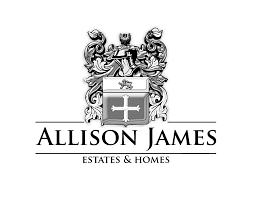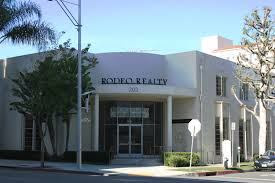NHM Rafic Vartan : le point sur l’économie des USA au 31 août 2019
des USA
par Rafic Vartan pour NHM
|
|
|
||||||
|
|
SANTA MONICA – 85 & 98
PACIFIC PALISADES – 109 & 27
MALIBU – 205 & 57
CALABASAS – 103 & 15
ENCINO – 142 & 39
SHERMAN OAKS – 169 & 63
STUDIO CITY – 83 & 30
BURBANK – 56 & 25
GLENDALE – 103 & 52
PASADENA – 207 & 121
Treasury Bond Yields – The 10 year Treasury bond closed the week yielding 2.08%, up from 2.04% last week. The 30 year Treasury bond yield ended the week at 2.6%, up from 2.55% last week. We watch Treasury bond yields because mortgage rates follow bond yields.
Mortgage rates – The July 25, 2019 Freddie Mac Primary Mortgage Survey reported that the 30 year fixed mortgage rate average was 3.75%, unchanged from 3.75% last week. The 15 year fixed was 3.18%, unchanged from 3.18% last week. The 5 year adjustable rate mortgage ( ARM) was 3.47%, unchanged from 3.47% last week.
California home sales retreat in June. 2019 housing market outlook revised upward – After rebounding in May, California home sales fell below the benchmark 400,000 level in June as sales declined from both the previous month and year, the California Association of Realtors ( C.A.R.) reported. Existing, single family home sales totaled 389,690 in June on a seasonally adjusted annualized rate, down 4.2% from May and down 5.1% from June 2018. June’s statewide median home price was $611,420, virtually unchanged from May and up 1.4% from June 2018. C.A.R.’s 2019 California housing market forecast was revised upward to 385,460 single family home sales and a median price of $593,000.
Condo vs. House. How to choose the right home for you – If your new home debate is down to condo vs. house, congratulations are in order. You've cut out co-ops, townhouses and a whole lot more. But you've still got to choose between a condominium and a single family house. How do you make the final choice? Take a look at the differences between these two popular housing options, and the benefits each can provide to you and your family.
Location – First and foremost, you must decide where you want to live. From there, find out about the condo and single family house options in the area. If you want to be in the heart of the city, condos will be more prevalent. However, for the same price, you could potentially find a single family home just a short commute away.
Privacy – Think about how much privacy you would like. Having complete privacy is possible in a single family house, while condo living means neighbors will be quite close. Condos may not offer private outdoor space.
Responsibility – When it comes to decisions affecting your home, do you feel comfortable involving neighbors? Many condo communities have strict rules about everything from paint choices to the hours when you can take out your trash cans. Singl family home communities tend to be more lenient, unless the community has a home owners' association ( HOA).
Maintenance – Many condos include maintenance fees that cover landscaping and even exterior maintenance on the unit. With a home, the home owner will have to take care of any maintenance. Many HOA communities do take care of exteriors, but specifics vary from neighborhood to neighborhood.
Budget – How much do you want to spend on the property? Condos are usually more affordable than a house, even with the housing market in flux. Give this point considerable thought. The last thing you want is to overextend financially
Deed vs. Title. What's the difference? Terms home buyers need to know – Deed vs. title. What's the difference? Most people use the terms interchangeably, but there's a significant difference between the two. A distinction that's important to understand when you're ready to purchase a home. So let's look at what distinguishes deed from title.
The difference between these 2 real estate terms – A deed is a legal document used to confirm or convey the ownership rights to a property. It must be a physical document signed by both the buyer and the seller. Title, however, is the legal way of saying you have ownership of the property. The title is not a document, but a concept that says you have the rights to use that property. So when you buy a property, you will receive the deed, a document that proves you own it. That deed is an official document that says you have title to the real estate.
How to get the deed and take title of a property – To get the deed and "take title," or legally own the property, your lender will perform a title search. This ensures that the seller has the legal right to transfer ownership of the property to you, and that there are no liens against it. If everything is clear, then at closing the seller will transfer the title to you, and you become the legal possessor of the property. The escrow company will then ensure the deed is recorded with the county assessor's office. You'll generally get a notification a few weeks after closing that your deed has been recorded. If you don't, check with the professional who did your closing and ensure that the paperwork has been filed. At that point, you have the deed and title to the real estate and the property is all yours.
What is title insurance? – Even with all of the due diligence a title company does before closing, there are rare instances when title problems can pop up later ( missed liens and other legal issues that can be very costly to resolve). To protect against any financial loss, two types of title insurance exist. Owner's title insurance and lender's title insurance. Unlike other types of insurance that protect the policyholder from events that may happen in the future, an owner’s title policy protects the buyer from events that have happened in the past. That may jeopardize their financial interest, such as title defects from fraud or paperwork errors, unpaid liens against the property, or claims that someone else is the real, legal property owner. On the other hand, when you secure a mortgage, your lender or bank will require that you purchase lender's title insurance to protect the lender's investment in case any title problems arise. Lender's title insurance essentially protects the lender's interest in your property, which is typically until your mortgage is paid off.
What are granny pods? A way to keep aging parents close to home – After children grow up and leave the nest, their parents may enjoy their newfound freedom for a while. But as those parents grow older, they and their adult kids may think about living close together again, but in a way that preserves everyone's independence. And voila! The granny pod. An affordable living solution for retirees wanting to downsize.
What is a granny pod? – Basically, a granny pod is a small modular home, typically between 300 and 500 square feet, that sits in the backyard of a main house. Think of it as an in-law unit that's designed to be easier to navigate for elderly folks who may have difficulties with mobility or vision. While the tiny space is ideal for one person, couples can certainly live in the space, too. Like a tiny house, each granny pod typically has a bedroom, living room, kitchenette, and bathroom. Also, the unit is mobile, so that if the whole family relocates, Grandma's pod can come, too.
Benefits of a granny pod – What makes a granny pod particularly suitable for seniors are the universal design features such as wide doorways, to allow wheelchair access, an open floor plan, and a walk-in shower. For those needing more advanced medical care, some granny pods feature a virtual system that can track one’s blood pressure, glucose levels, heart rate, and blood gases, and share that information with the occupant’s family and physician. Some systems are also equipped to verbally remind the occupant to take their medications! Some granny pods are also designed with voice controlled smart home features such as door locks, lighting, heating, and window shades. Others are built with more advanced medical amenities like pressurized ventilation systems to keep outdoor air from leaking inside if the resident has a compromised immune system.
How much does a granny pod cost? – The price of a granny pod can range from $40,000 to $125,000, depending on the size and the amenities included. And since you can't take out a mortgage for one that will need to be paid upfront. On the other hand, the amount is comparable to a down payment on a regular home. Also, since the pod will share water, sewer, and power with the main house, the property owners will likely see an increase in their utility bills.
Disadvantages of owning a granny pod – If you are considering a granny pod, it’s important to be aware that your property may not be zoned for the addition of an alternative living unit like a guesthouse or granny pod. Although some communities have zoning laws which are pod friendly, in most cases there are several restrictions to follow. Therefore, be sure to inquire with your city planning office about the process of building on your property and the type of permits you'll need.
Granny pods and multigenerational living – Over the past several years more and more homeowners have expressed interest in them when looking for a home to buy. I work with more and more buyers who are looking for a multigenerational solution for their families. Granny pods can keep the family together, eliminate high nursing home costs, and allow the elderly to keep their privacy and their dignity.
Quote of the week
Do not wait!
The time will never be “Just Right.” Start where you stand,
and work with whatever tools you may have at your command,
and better tools will be found as you go along.
Napoleon Hill
Have a wonderful week!
Thinking of Selling or Buying?
Thinking of Selling or Buying?
call me !
3 1 0 . 9 2 0 . 0 7 9 7
contact@vartanandco.com
Let me make this
Sale or Buy
as pleasant and fruitful as possible
For You!
BEVERLY HILLS – 448 & 68
WEST HOLLYWOOD – 325 & 117
BRENTWOOD – 135 & 30
MANHATTAN BEACH – 104 & 18
MARINA DEL REY – 33 & 60
VENICE – 86 & 11
CULVER CITY – 33 & 12
SANTA MONICA – 85 & 98
PACIFIC PALISADES – 109 & 27
MALIBU – 205 & 57
CALABASAS – 103 & 15
ENCINO – 142 & 39
SHERMAN OAKS – 169 & 63
STUDIO CITY – 83 & 30
BURBANK – 56 & 25
GLENDALE – 103 & 52
PASADENA – 207 & 121
|
||||||
|
Dernière activité sur le compte : il y a 6 minutes
Détails
|
|
|
|
|
|
Dernière activité sur le compte : il y a 44 minutes
Détails
|
|
|
|
|||||||||||||||||
|
|
|
|

 le point sur l'économie
le point sur l'économie





